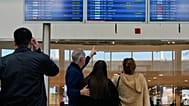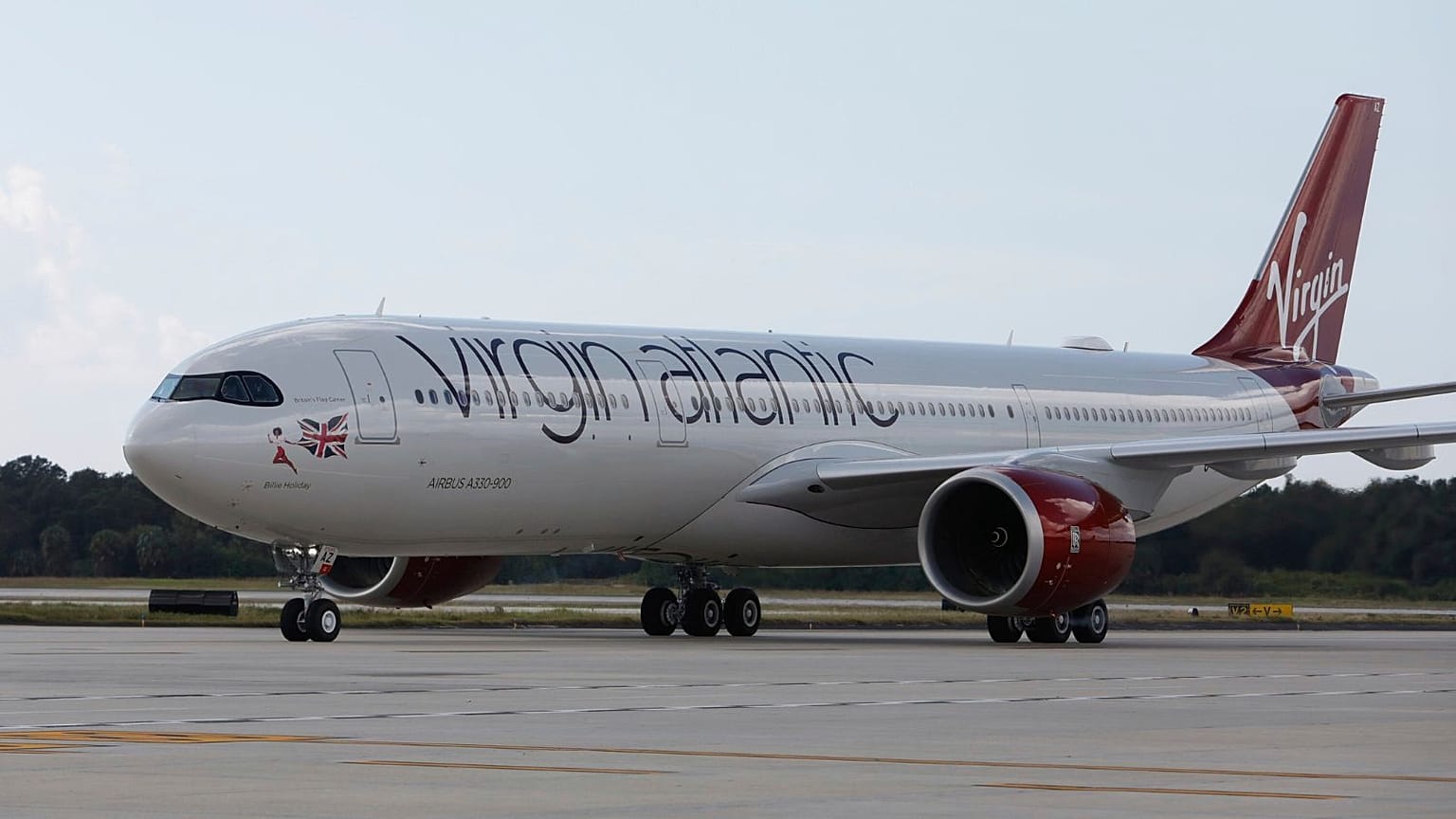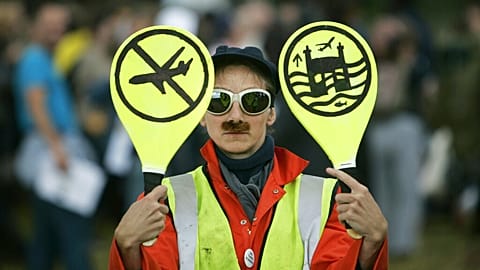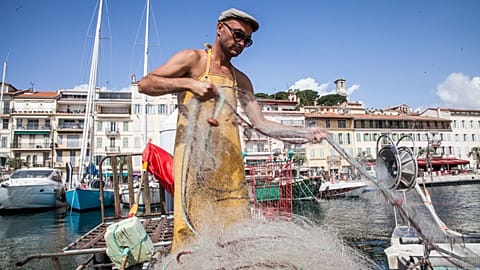The first transatlantic flight by a passenger plane to use exclusively sustainable aviation fuels took off from London this morning.
Among the more than 500 flights coming and going from London’s Heathrow today, one is carrying the hopes of the aviation industry.
 ADVERTISEMENT
ADVERTISEMENT
 ADVERTISEMENT
ADVERTISEMENT
You’d struggle to pick it out from a line-up of other Boeing 787 jets, but this particular New York-bound passenger plane is powered exclusively by green fuels.
So-called sustainable aviation fuels (SAF) can be made from a variety of non-fossil sources. In this case, the Dreamliner was loaded with 50 tonnes of fuel derived primarily from waste fats as well as the wastes of corn production.
But climate campaigners weren’t among those cheering off the departure of the Virgin Atlantic flight from Heathrow to JFK airport at 11.30 GMT.
“The aviation sector’s current attempts to promote ‘sustainable’ flights is a greenwashing distraction from the urgent need to reduce flights,” says Magdalena Heuwieser from Stay Grounded, a network which campaigns for this outcome.
What’s the problem with sustainable aviation fuels?
Campaigners argue that SAFs cannot be produced on a wide enough scale to make a significant dent in aviation’s carbon emissions, which comprise 2.5 per cent of the world’s total.
Around 100,000 flights depart globally every day. SAF, which is already blended in tiny amounts with traditional jet fuel, accounts for less than 0.1 per cent of the fuel consumed on these journeys.
“Fuel substitutes are only a tiny drop in a fossil fuel ocean,” says Heuwieser. “They are nowhere close to being scalable in the necessary time frame to avoid climate collapse.”
Finlay Asher, an aerospace engineer who used to work for Rolls Royce - which made the Boeing jet’s engine - says that SAFs “rarely do what they say on the tin.
“This Virgin flight will be powered by a fuel that has been produced via a process which is a technological dead-end: it can’t be sustainably scaled beyond a few per cent of existing jet fuel use.”
There is a limited supply of waste cooking oil to make SAF and it’s already used in biodiesel for other transport, Helena Bennett, head of climate policy at Green Alliance UK points out on X.
The aviation industry is aware of this issue. Shai Weiss, chief executive of Virgin Atlantic, acknowledged there is not enough SAF currently.
“The issue is how we get enough production here in the UK as part of an industrial revolution and more importantly around the world,” he told the BBC.
And crucially, while the industry says that the “lifecycle emissions” of SAFs can be up to 70 per cent lower than traditional fuels, planes running on old oil still emit carbon.
So why are airlines calling the first transatlantic SAF flight ‘momentous’?
Nonetheless, airlines are hailing today’s flight as proof that a more sustainable alternative is possible.
“It's really the only pathway to decarbonising long-haul aviation over and above having the youngest fleet in the sky,” Weiss added. “It is a really momentous achievement.”
Degrowth is not seriously entertained by airlines. “To think that we can magic up elimination of flying, I think is naive to an extreme,” Weiss said in response to a question by travel expert Simon Calder, regarding how he’d respond to accusations of greenwashing.
Oil and gas giant BP is also involved in the project, which received UK government funding. The flight was approved by UK regulator the Civil Aviation Authority earlier this month following test and analysis.
There are no paying passengers on the VS100 flight, which is due to land at JFK at 14.50 EST - but you can track the journey online.
Campaigners accuse aviation industry of greenwashing at COP28
Green groups say that the timing of the headline-grabbing flight, two days before the UN COP28 climate summit kicks off on Thursday (30 November) is no coincidence.
Airlines including Lufthansa and Etihad are promoting ‘green’ flights to the COP, pointing to the use of SAFs.
The German carrier, for instance, is offering what it called “a particularly sustainable offer package” for passengers travelling to COP8 in Dubai from Germany, Austria, Switzerland and Belgium.
Fliers from these countries are being advertised a fare which promises 100 per cent offsetting of flight-related CO2 emissions via SAF. Business class passengers have the added perk of airport-hotel transfer in an e-limousine.
There will be many private jets at the COP again, says Chuck Collins, from the US based Institute for Policy Studies and co-author of the private jet study High Flyers.
“We see that the private jet set is on the defense about their indefensible form of transport on a warming planet,” he says. “Their only fig leaf is to point to SAF which is neither sustainable, practical, or scientifically realistic in any timeframe to rapidly reduce emissions.”
The aviation industry is also holding a four-hour forum on COP28’s mobility day on 6 December.

















